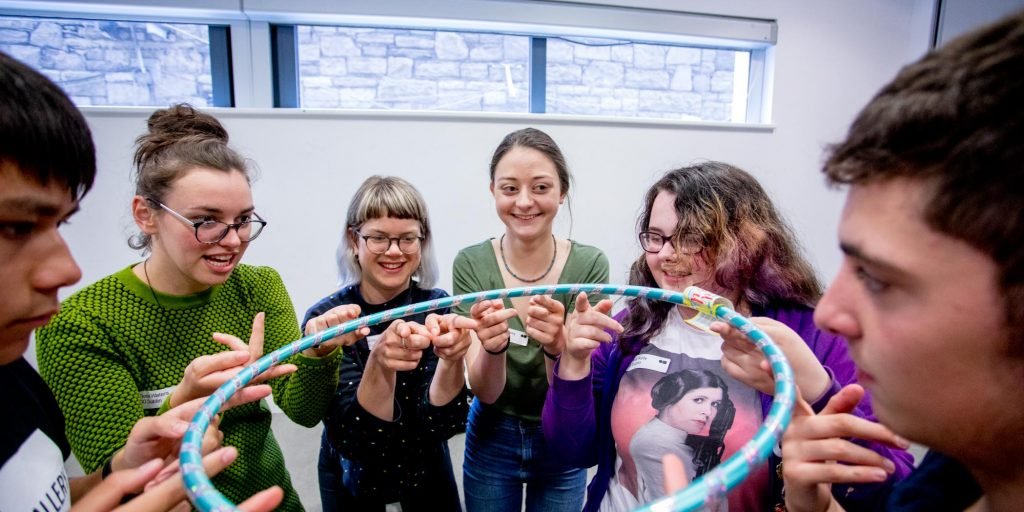White paper on equity: policy recommendations from SySTEM 2020
EU Project SySTEM 2020, coordinated by Science Gallery Dublin, identified eight approaches that policy-makers can adopt to improve equity within informal science education
SySTEM 2020’s last in-person workshop of 2020
The SySTEM 2020 Project focused on science learning outside the classroom, mapping practices in 19 countries across Europe and evaluating several transdisciplinary programmes. The project, coordinated by Science Gallery Dublin, aimed to bring understanding on aspects related to the scientific literacy of children and teenagers, as well as ideate, design and evaluate solutions to support informal science education.
Throughout the research, a series of co-design sessions with international science education experts took place with a goal of creating strategies to support equity-focused initiatives. These sessions delivered eight approaches and resulted in the SySTEM 2020 White Paper on Equity-Focused Science Education Outside the Classroom.
“Our research and tools can frame agendas and policies that position Europe at the forefront of developing an equitable and diverse science learning landscape.”
The White Paper targets decision-makers and policymakers in informal science education, providing tools to start working towards equity in their own contexts and helping integrate equity into their practice from a holistic approach. The document presents a set of action areas and strategies to support equity in Science Education Outside the Classroom (SEOC) and provides a lens to look at different aspects related to equity in informal science education organisations.
The strategies to support equity in SEOC have been organised around the following eight action areas: framing, embedding, bridging, involving, designing, assessing, sustaining and advocating. Each of these action areas unfolds into three practical strategies that structure actions towards equity goals in SEOC. The key equity action approaches and the suggested strategies to implement them are outlined also in the System 2020 Final Report - Findings and Recommendations.
SySTEM 2020 team in Helsinki, Finland
WHAT THEY SAID?
‘Through this work, several trends and divides have come to the fore that require institutional and policy responses in order to turn the tide, and begin moving towards a systemic change in science education. We have created a series of adaptable and practical tools for educators that will support and cultivate learners’ interest in science. These tools have been curated to respond to the growing need to ensure that we create pathways to welcome learners from all backgrounds into science learning, and meet them wherever they are. We hope that our work will support the integration of learning ecosystems which link formal and non-formal education, families and wider communities, spanning a range of subject disciplines and supporting multiple ways of knowing and learning. (...) The possibilities for all should be, and can be, within our reach. Our research and tools can frame priorities, agendas and policies that position Europe at the forefront of developing an equitable and diverse science learning landscape.’ - Dr Mairéad Hurley, SySTEM 2020 Principal Investigator, Trinity College Dublin
WHAT WERE THE BENEFITS AND IMPACTS?
▶ Policy recommendations
▶ Equity and inclusion
▶ Informal and non-formal learning
▶ Exposure to new ideas
Sources: SySTEM 2020 website, Science Gallery Dublin website
Compiled by: Jahitza Balaniuk, Science Gallery International in 2021
Activity date: 2020 - 2021


